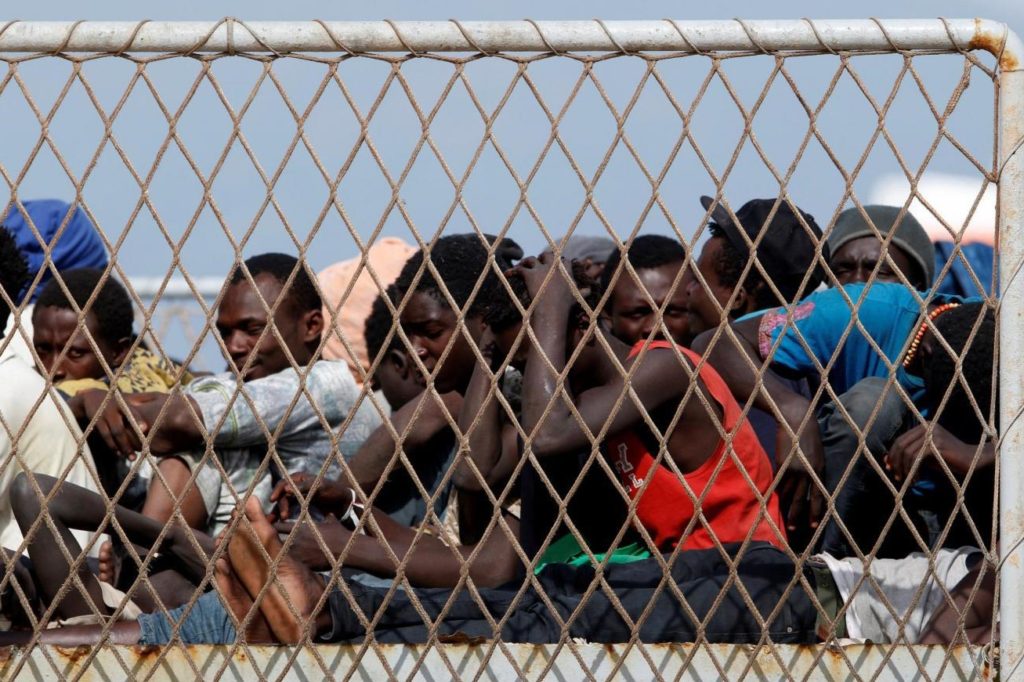Reuters photo
By
Ricardo Swire
Over the past five years Caribbean internal security officials have monitored a constant increase of international asylum seekers to island shores, worldwide trends showing that cities and countries with high crime rates have excessive immigration populations.
The archaic regional approach to national security was focused mainly on military concerns, especially state sovereignty and protection from external threats. The modern security definition and approach expanded to include societal, economic, internal, migration and public considerations. Humanity, cultural identity and the individual self are prioritized instead of a threatened state.
Combat, oppression, religious persecution and genocide are prevalent themes that influence mass migration. “Forced repatriation” adds to regional internal security challenges, especially situations where immigrant felons are not fully integrated in their host societies. The Caribbean intelligence apparatus registers asylum seekers with links to terrorism and organized crime. According to United Nations’ estimates, international crime generates between US$1 trillion and US $1.5 trillion yearly.
Drug money, channeled via Diaspora networks, was a major contributor to Haiti’s 2004 coup and continues to influence gun violence in Jamaica, Trinidad & Tobago, Colombia and Mexico. International criminal syndicates use respective Diasporas for bonanzas. Similar to legitimate commerce, international criminal activity depends on well managed administrative mechanisms and trust that diasporic networks provide.
Updated reports verified Albanian criminal factions seized this “channelling” advantage and expanded overseas. Mafia entities utilize expatriate Italian populations in the Caribbean to operate gambling, extortion, drug trafficking, aliens smuggling, arms deals and environmental crimes particularly hazardous waste dumping, toxic shipments that can anonymously piggyback on legitimate Vitrified High Level Waste’s radioactive garbage shipments, routinely transiting the Caribbean Sea, journeying from the United Kingdom to Japan.
2014 immigration statistics tabulated seven hundred and seventy multi-national asylum seekers entered Caribbean islands that year. In 2015 eight hundred and thirty-seven arrived, an increase of sixty-seven. From June 2015 to June 2016 two hundred and fifty-seven percent more asylum seekers entered regional territories. January to June 2016 nine hundred and seventy-six migrants landed. Belize, the Dominican Republic and Trinidad & Tobago preferred choices.
These migrants journeyed from Asia, Africa, Bangladesh, Colombia, Pakistan, Sri Lanka, Venezuela and the Middle-East. Caribbean internal security intelligence officials consider ramifications from the traditional Hong Kong and Taiwan triad group amalgamation with mainland China’s criminal gangs. Combined activities now extend to more sophisticated crimes such as credit card fraud, computer chip theft and violations of intellectual property rights.
The Asian Tigers have quietly ascended to become economic competitors in global markets with China and Japan. Some asylum seekers are former wealthy rising sun of Japan nationals, with business empires eclipsed by China’s competitive influence and financial dominance. Caribbean internal security intelligence officials regard five hundred Nigerian criminal cells, operating in eighty countries, as an asylum seeker red flag. These Nigerians are the titans of Asian heroin trafficking and complex fraud schemes. According to US Customs & Border Protection (CBP) thirty percent of heroin, intercepted at America’s international airports, is found on couriers employed by Nigerian trafficking syndicates.
Ricardo Swire
Ricardo Swire is the Principal Consultant at R-L-H Security Consultants & Business Support Services and writes on a number of important issues.



No Comments Yet!
You can be first to comment this post!